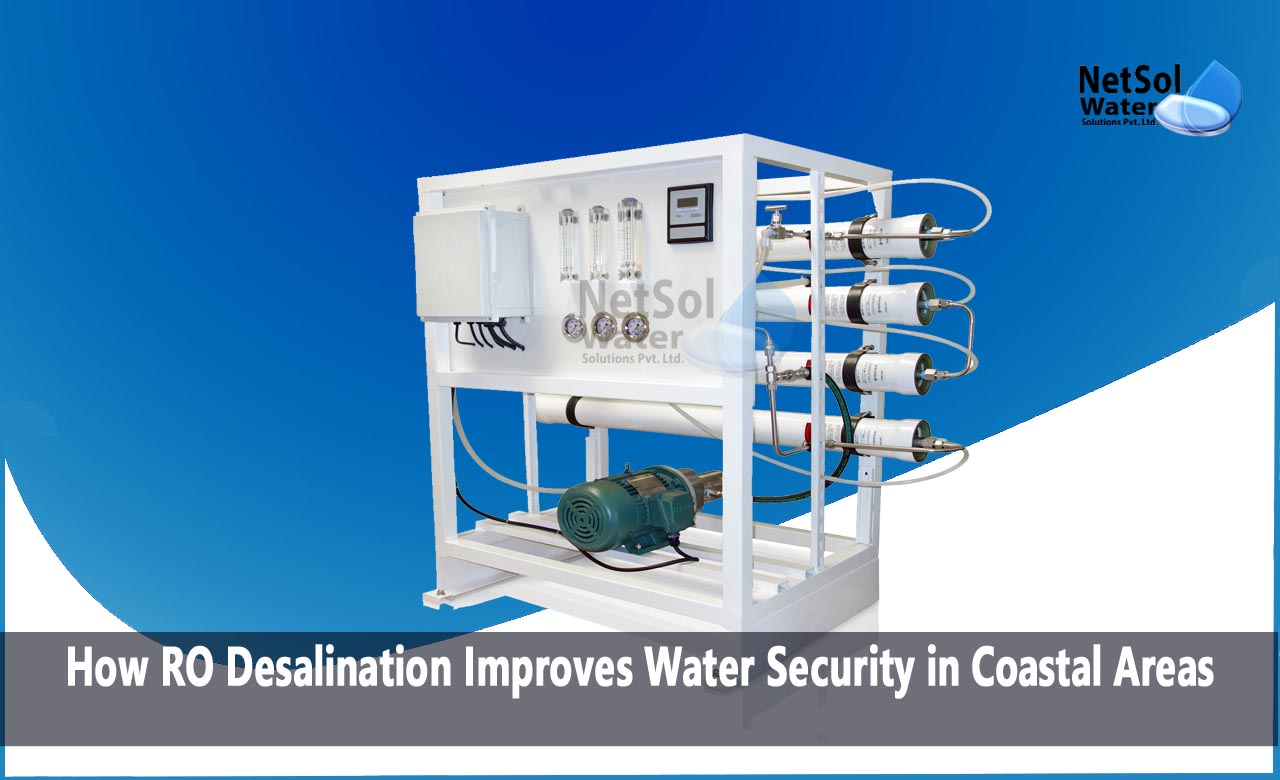How RO Desalination Improves Water Security in Coastal Areas?
In a generation marked by rapid urbanization, climate change, and population boom, making sure a sustainable and steady water delivery has emerged as a paramount subject, especially in coastal areas. Reverse Osmosis (RO) desalination has appeared as a transformative solution to cope with water safety demanding situations in these areas. In this blog, we will discover the water protection advantages of RO desalination and its critical position in securing fresh water for coastal communities.
The Coastal Conundrum: Water Scarcity and Salinity
Coastal regions, even as picturesque and frequently economically colourful, face an utterly unique water undertaking: the coexistence of water scarcity and considerable seawater. Freshwater assets may be restricted, and the available supply is frequently inadequate to meet the needs of growing populations and industries. At the same time, the proximity to the sea offers an untapped aid - seawater - which, if harnessed successfully, can alleviate the water shortage problem. This is in which RO desalination steps in.
RO Desalination: How It Works
Reverse Osmosis (RO) desalination is a technology that eliminates salt and other impurities from seawater to make it potable and appropriate for diverse packages. The technique is based on a semi-permeable membrane that permits water molecules to pass through whilst rejecting salts and contaminants. Here's how RO desalination provides a lifeline to coastal communities:
1. Abundant Seawater Resource
Coastal regions have a ready and, without a doubt, countless deliveries of seawater. By tapping into this aid, RO desalination plants can produce an enormous extent of freshwater every day, imparting a continuous and reliable source of water and water for diverse uses.
2. Climate-Resilient Water Supply
In the face of climate alternates, coastal regions regularly revel in fluctuations in rainfall styles and increasing dangers of drought. RO desalination gives a climate-resilient answer, as it does not depend on rainfall. It ensures a vital water supply even in instances of prolonged dry spells.
3. Reducing Pressure on Overburdened Freshwater Sources
RO desalination allows for the reduction of the pressure on present freshwater assets, including rivers, lakes, and underground aquifers. By moving to desalinated seawater, coastal communities can preserve their fragile freshwater ecosystems and defend towards over-extraction.
4. Enhanced Water Security
RO desalination enhances water safety by diversifying the water supply. Coastal regions that depend solely on freshwater sources are prone to deliver disruptions due to pollutants, drought, or herbal failures. Desalinated water gives a buffer in opposition to these uncertainties.
5. Supporting Population Growth and Economic Development
In hastily developing coastal cities and regions, clean water can grow to be a proscribing thing for further development. RO desalination facilitates population growth, industrial expansion, and tourism by ensuring a constant water supply.
6. Tackling Water Quality Challenges
Seawater desalination now not only removes salts but also correctly gets rid of other water contaminants and impurities. It produces excellent drinking water that meets or exceeds stringent water standards.
Challenges and Considerations
While RO desalination gives numerous water protection blessings in coastal regions, it is not without challenges. Some concerns include:
1. Energy Consumption: RO desalination can be power-in-depth. The method requires a full-size amount of power, which may be luxurious and make contributions to greenhouse fuel emissions.
2.Environmental Impact: The intake and disposal of seawater could have ecological impacts on coastal ecosystems. Properdesigning and operating desalination plants are vital to minimising these outcomes.
3.Cost and Financing: The initial capital cost of constructing and keeping desalination centres may be high. Coastal communities need to discover financing alternatives and pricing mechanisms to ensure affordability.
4. Brine Disposal: Disposal of focused brine the byproduct of desalination, calls for cautious plans to save you from damaging impacts on marine environments.
Conclusion
In coastal regions, where freshwater resources are scarce and precious, RO desalination emerges as a lifesaver. By harnessing the energy of ample seawater, this technology ensures a resilient and sustainable water delivery, enhances water security, and helps the boom and prosperity of coastal communities. While challenges exist, the advantages of RO desalination make it an effective tool in addressing the pressing water security issues of the twenty-first century. Coastal regions are witnessing the promise of a stable and sustainable water destiny, thanks to the wonders of RO desalination.
Netsol Water is Greater Noida-based leading water & wastewater treatment plant manufacturer. We are industry's most demanding company based on client review and work quality. We are known as best commercial RO plant manufacturers, industrial RO plant manufacturer, sewage treatment plant manufacturer, Water Softener Plant Manufacturers and effluent treatment plant manufacturers. Apart from this 24x7 customer support is our USP. Call on +91-9650608473, or write us at enquiry@netsolwater.com for any support, inquiry or product-purchase related query.



